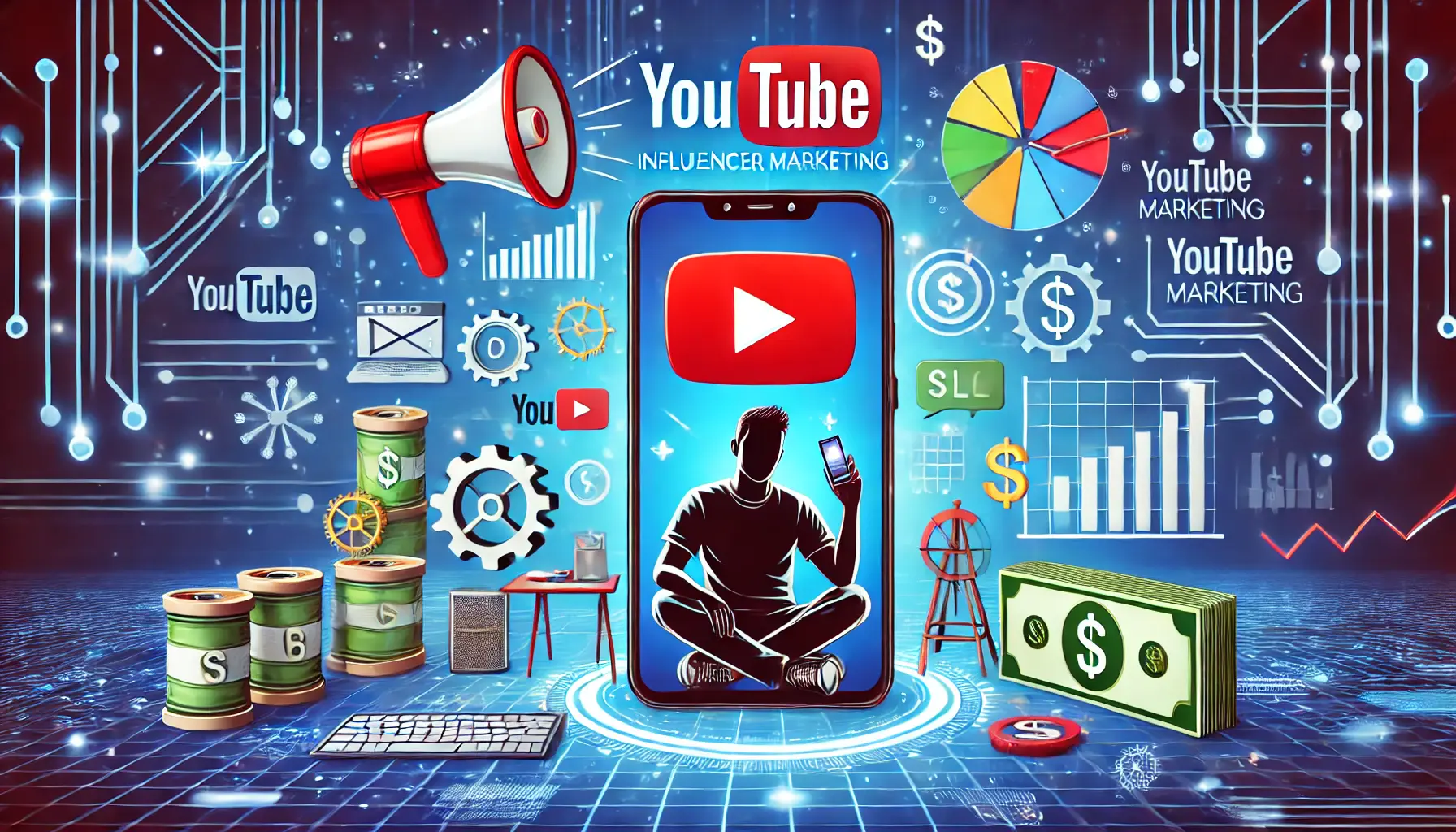In the digital age, the intersection of influencer marketing and search engine optimization (SEO) strategies has become an essential focus for brands aiming to enhance their online visibility and engagement.
Influencer marketing, once seen as a standalone tactic for brand promotion through personalities with significant social followings, is now recognized for its substantial impact on SEO.
This synergy between influencers and SEO is not just about leveraging popularity but is a strategic approach to improve search rankings, drive traffic, and enhance online presence.
Understanding the role of influencer marketing within the realm of SEO requires a deep dive into how these collaborations can boost a website’s performance in search engine results pages (SERPs).
The essence of this strategy lies in the natural and authoritative backlinks generated from influencer content, the enhancement of content diversity, and the amplification of social signals.
These elements are pivotal in signaling to search engines the relevance, authority, and trustworthiness of a website, thereby improving its ranking and visibility.
- Understanding the Basics of Influencer Marketing in SEO
- Enhancing Content Strategy with Influencer Collaboration
- Leveraging Social Signals for SEO Enhancement
- Optimizing Influencer Selection for SEO Impact
- Integrating Influencer Content into SEO Strategies
- Measuring the Impact of Influencer Marketing on SEO
- Future Trends in Influencer Marketing and SEO
- Conclusion: The Symbiotic Relationship Between Influencer Marketing and SEO
- Influencer Marketing in SEO Strategy FAQs
Understanding the Basics of Influencer Marketing in SEO
Influencer marketing and SEO might seem like two distinct fields, but their integration can lead to a powerful synergy that boosts a brand’s online visibility and authority.
At its core, influencer marketing involves partnering with influential individuals who have a substantial and engaged following on social media or other digital platforms.
These influencers can sway the opinions, behaviors, and purchase decisions of their audience, making them valuable allies in digital marketing strategies.
When it comes to SEO, the goal is to improve a website’s visibility in search engine results, thereby increasing organic traffic.
Influencers can play a crucial role in this process by creating and sharing content that links back to the brand’s website.
This not only drives direct traffic but also contributes to the site’s backlink profile, a critical factor in search engine rankings.
The natural, high-quality links generated from influencer collaborations signal to search engines that the brand’s content is valuable and trustworthy, leading to improved SEO performance.
Building a Strong Link Profile
A robust link profile is essential for SEO success, and influencer marketing can significantly contribute to this aspect.
Influencers who share content that includes links to a brand’s website help build a diverse and natural link profile.
These backlinks are viewed favorably by search engines like Google, as they indicate that the content is valuable enough to be shared by reputable sources.
The key is to engage influencers who are relevant to the brand’s niche, ensuring that the backlinks are contextually appropriate and likely to drive relevant traffic.
Moreover, the quality of the backlinks matters as much as their quantity.
Links from high-authority domains and pages related to the brand’s industry can have a more significant impact on SEO rankings than those from lesser-known or irrelevant sources.
Therefore, selecting influencers with a strong presence in the brand’s specific field is crucial for maximizing the SEO benefits of influencer marketing campaigns.
Incorporating influencer marketing into your SEO strategy can lead to a more diverse and authoritative link profile, enhancing your website’s search engine rankings.
Enhancing Content Strategy with Influencer Collaboration
Influencer marketing can significantly enrich a brand’s content strategy, introducing fresh perspectives and engaging material that resonates with a broader audience.
Collaborating with influencers allows brands to diversify their content portfolio, tapping into the creativity and unique voice of each influencer.
This not only captivates the influencer’s existing audience but also attracts new followers to the brand, thereby expanding its reach and engagement.
Moreover, influencers are adept at crafting content that appeals to their audience’s interests and preferences, which can lead to higher engagement rates.
By integrating influencer-generated content into their overall content strategy, brands can leverage this engagement to boost their SEO efforts.
Engaging content is more likely to be shared, commented on, and linked to, all of which are positive signals to search engines and can improve a website’s rankings.
Types of Influencer-Generated Content
- Blog Posts: Influencers can create detailed blog posts that include backlinks to the brand’s website. These posts can provide valuable information, reviews, or how-to guides relevant to the brand’s products or services.
- Social Media Posts: Short-form content on platforms like Instagram, Twitter, or Facebook can drive immediate traffic and engagement, increasing brand visibility and direct interactions with potential customers.
- Videos: YouTube videos or Instagram Stories featuring product reviews, unboxings, or tutorials can visually engage viewers and encourage them to visit the brand’s website for more information.
Maximizing Content Reach and Engagement
To maximize the impact of influencer-generated content on SEO, brands should focus on creating high-quality, relevant, and shareable content.
This involves working closely with influencers to ensure that the content aligns with both the brand’s goals and the influencer’s style and audience preferences.
Additionally, incorporating keywords and phrases related to the brand’s products or services can further optimize the content for search engines, making it more likely to rank higher in search results.
Another strategy is to encourage influencers to promote their content across multiple platforms, thereby amplifying its reach.
Cross-promotion can introduce the brand to diverse audiences, increasing the potential for high-quality backlinks and social signals that positively impact SEO.
Leveraging influencer-generated content is a strategic approach to enhance your content strategy, driving engagement and improving SEO performance through diverse and high-quality material.
Leveraging Social Signals for SEO Enhancement
Social signals refer to the likes, shares, comments, and overall social media presence that content garners, which can indirectly influence a website’s SEO performance.
While social signals are not direct ranking factors according to major search engines like Google, they can significantly impact the visibility and reach of content online.
Influencer marketing plays a pivotal role in amplifying these social signals, as influencers can mobilize their followers to engage with content, thereby increasing its visibility and potential to be linked back to from other websites.
Engagement generated through influencer marketing can lead to increased brand awareness and content reach.
As more people share and interact with the content, it gains visibility across social platforms and beyond, catching the attention of other content creators, bloggers, and websites that might link back to the original content.
These backlinks, as a result of heightened social signals, contribute positively to a website’s SEO.
Strategies to Boost Social Signals through Influencers
- Engagement Campaigns: Collaborate with influencers on campaigns designed to encourage interaction, such as contests, live Q&As, or hashtag challenges. These campaigns can drive significant engagement and social sharing.
- User-Generated Content: Encourage influencers to prompt their audience to create content related to the brand, such as reviews or testimonials. This not only boosts social signals but also generates authentic content that can improve trust and credibility.
- Exclusive Offers: Provide influencers with exclusive promo codes or early access to products/services to share with their followers. This can increase engagement and shares, as followers are incentivized to interact with the content.
Measuring the Impact of Social Signals on SEO
While the direct impact of social signals on SEO rankings is challenging to quantify, brands can monitor changes in website traffic, backlink profiles, and search engine rankings following influencer campaigns to gauge their effectiveness.
Tools like Google Analytics and SEO platforms can track referrals from social media and identify increases in organic search traffic, offering insights into how influencer-driven social signals may be affecting SEO.
Additionally, monitoring the engagement levels on influencer-generated content can provide valuable feedback on the content’s reach and appeal, allowing brands to refine their strategies for future campaigns.
By analyzing which types of content and influencer collaborations yield the best results, brands can optimize their use of social signals to enhance their SEO efforts.
Social signals, amplified by influencer marketing, can significantly enhance a brand’s online visibility and contribute to SEO success, even if indirectly.
Optimizing Influencer Selection for SEO Impact
Choosing the right influencers is crucial for maximizing the SEO benefits of influencer marketing campaigns.
The effectiveness of these campaigns doesn’t solely depend on the influencer’s follower count but also on their relevance to the brand’s target audience, the engagement rate of their content, and their authority within a specific niche or industry.
A well-chosen influencer can provide not only valuable backlinks but also enhance the brand’s content strategy and social signal strength.
To optimize influencer selection, brands must conduct thorough research to identify influencers who align with their brand values, audience demographics, and marketing goals.
This alignment ensures that the content created will resonate with both the influencer’s followers and the brand’s target audience, leading to higher engagement rates and more effective SEO outcomes.
Criteria for Selecting Influencers
- Relevance: The influencer’s content should align with the brand’s industry and values. Their audience should also match the brand’s target demographic to ensure content relevance and engagement.
- Engagement Rate: An influencer with a high engagement rate is often more valuable than one with a large but passive following. High engagement indicates that the influencer’s audience is active and interested in their content, which can lead to more effective dissemination of the brand’s message.
- Authority and Credibility: Influencers who are considered experts or authoritative figures in their niche can lend credibility to the brand and its products or services, enhancing the perceived value of the content and the backlinks it generates.
Tools and Techniques for Influencer Research
Finding the right influencers requires the use of specialized tools and platforms that can provide insights into influencers’ audience demographics, engagement rates, and content quality.
Tools like BuzzSumo, Hootsuite, and Followerwonk allow brands to search for influencers by keywords related to their industry, analyze their social media activity, and evaluate their influence based on engagement and reach metrics.
Additionally, manually reviewing potential influencers’ content and audience interactions can provide a deeper understanding of their fit with the brand.
This hands-on approach helps identify influencers who genuinely engage with their followers and create content that aligns with the brand’s SEO and marketing objectives.
Effective influencer selection is foundational to leveraging influencer marketing for SEO, requiring a balance of relevance, engagement, and authority to drive meaningful results.
Integrating Influencer Content into SEO Strategies
Integrating influencer content effectively into an overarching SEO strategy requires careful planning and coordination.
This integration is not just about having influencers create content but about ensuring that this content supports the brand’s SEO goals.
Effective integration involves keyword optimization, content diversification, and strategic distribution to enhance the brand’s search engine visibility and ranking.
To achieve this, brands must work closely with influencers to align their content creation with key SEO objectives.
This includes identifying target keywords and phrases that influencers can naturally incorporate into their content, thereby improving its relevance and potential to rank for those terms.
Additionally, influencer content should complement the brand’s existing content strategy, filling gaps and reaching audiences that may be difficult to engage through traditional SEO tactics alone.
Keyword Optimization in Influencer Content
- Keyword Research: Conduct thorough keyword research to identify terms and phrases that are relevant to the brand’s products or services and have a high search volume. Share these keywords with influencers to incorporate into their content.
- Natural Integration: Encourage influencers to use keywords naturally within their content, avoiding over-optimization which can detract from the content’s authenticity and readability.
Content Diversification and Distribution
Diversifying the types of content created by influencers can help reach different segments of the brand’s target audience.
For example, blog posts can attract readers looking for detailed information, while social media posts and videos can engage users seeking more visual or interactive content.
Distributing this content across various platforms maximizes its visibility and impact, driving traffic back to the brand’s website and improving its SEO performance.
Furthermore, repurposing influencer content for different formats and platforms can extend its reach and lifespan.
A blog post can be transformed into an infographic, a video script, or a series of social media posts, each optimized for SEO and designed to engage audiences in different ways.
By strategically integrating influencer content into SEO strategies, brands can enhance their online visibility, engage with broader audiences, and achieve their SEO goals more effectively.
Measuring the Impact of Influencer Marketing on SEO
To understand the effectiveness of influencer marketing in enhancing SEO, it’s crucial to measure its impact accurately.
This involves tracking a variety of metrics that can indicate improvements in website traffic, search engine rankings, and overall online visibility.
By setting clear objectives and utilizing the right tools, brands can gain insights into how influencer collaborations contribute to their SEO success.
Key performance indicators (KPIs) for measuring the impact include organic search traffic, the number of backlinks generated, keyword rankings, and engagement metrics on both the influencer’s and the brand’s content.
These metrics can help brands evaluate the ROI of their influencer marketing efforts and refine their strategies for future campaigns.
Key Metrics to Track
- Organic Search Traffic: An increase in organic traffic to the brand’s website can indicate that influencer marketing efforts are improving SEO visibility.
- Backlink Profile: The quantity and quality of backlinks generated from influencer content are crucial for SEO. Tools like Ahrefs or Moz can help track these links and assess their impact on search rankings.
- Keyword Rankings: Monitoring changes in the rankings for targeted keywords can provide insights into the effectiveness of influencer content in boosting SEO performance.
- Engagement Metrics: Engagement on influencer-generated content, such as likes, shares, and comments, can indirectly affect SEO by increasing content visibility and reach.
Utilizing Analytics Tools
Analytics tools play a vital role in measuring the impact of influencer marketing on SEO.
Google Analytics, for example, can track organic search traffic and referral traffic from influencer content, while SEO platforms like SEMrush and Moz offer comprehensive tools for monitoring keyword rankings and backlink profiles.
By regularly analyzing these metrics, brands can identify which influencer collaborations are most effective and adjust their strategies accordingly.
It’s also important to conduct a qualitative analysis of the influencer content to understand how it resonates with the audience and contributes to the brand’s SEO objectives.
This includes reviewing the content’s relevance, the authenticity of the influencer’s message, and the overall user engagement.
Such insights can inform future influencer selections and content strategies, ensuring continuous improvement in SEO performance.
Measuring the impact of influencer marketing on SEO requires a combination of quantitative and qualitative analysis, utilizing a range of tools and metrics to capture the full scope of its effectiveness.
Future Trends in Influencer Marketing and SEO
The landscape of influencer marketing and SEO is constantly evolving, with new trends and technologies shaping the way brands approach their digital marketing strategies.
As we look to the future, several key trends are poised to influence how influencer marketing can further enhance SEO efforts.
Staying ahead of these trends will be crucial for brands aiming to maintain competitive advantage and maximize their online visibility.
One significant trend is the increasing importance of authenticity and trust in influencer marketing.
Consumers are becoming more discerning, favoring influencers who offer genuine insights and recommendations over those who appear overly promotional.
This shift emphasizes the need for brands to partner with influencers who have a real connection to their products or services, as authentic content is more likely to engage audiences and generate valuable backlinks for SEO.
Emerging Technologies and Platforms
- Video Content: The rise of video platforms like TikTok and the continued popularity of YouTube highlight the growing importance of video content in influencer marketing. Video content not only engages users but also offers unique opportunities for SEO through video search results and increased dwell time on websites.
- AI and Machine Learning: Advances in AI and machine learning are enabling more sophisticated content personalization and optimization. These technologies can help brands and influencers create content that is highly relevant to specific audience segments, improving engagement and SEO performance.
- Voice Search Optimization: With the increasing use of voice-activated devices, optimizing content for voice search is becoming more important. Influencers can help brands target conversational keywords and phrases that are likely to be used in voice searches, enhancing visibility in this growing search segment.
Adapting to Changing SEO Algorithms
Search engines are continually updating their algorithms to provide users with more relevant and high-quality search results.
Brands and influencers must stay informed about these changes and adapt their strategies accordingly.
This may involve focusing more on creating comprehensive, high-quality content that addresses user intent or leveraging new content formats that are favored by search algorithms.
As influencer marketing and SEO continue to converge, the ability to innovate and adapt to these trends will be key to achieving sustained online visibility and engagement.
By embracing new technologies, platforms, and content strategies, brands can leverage influencer marketing to not only enhance their SEO performance but also build deeper connections with their audiences.
The future of influencer marketing and SEO lies in authenticity, technological innovation, and adaptability to changing search algorithms, driving forward strategies that prioritize user engagement and content relevance.
Conclusion: The Symbiotic Relationship Between Influencer Marketing and SEO
In the rapidly evolving digital landscape, the integration of influencer marketing into SEO strategies has emerged as a pivotal approach for brands aiming to enhance their online visibility and engagement.
This article has explored the multifaceted relationship between influencer marketing and SEO, highlighting how influencers can significantly impact a brand’s search engine rankings, drive traffic, and improve overall online presence.
The synergy between these two domains offers a comprehensive framework for brands to not only reach wider audiences but also to build trust and authority in their respective industries.
Key Takeaways
The collaboration between influencers and brands goes beyond mere content creation; it’s about crafting a narrative that resonates with the target audience, thereby generating valuable backlinks and social signals that are crucial for SEO.
The strategies discussed herein underscore the importance of:
- Choosing the right influencers based on relevance, engagement, and authority within a specific niche.
- Creating high-quality, engaging content that incorporates targeted keywords naturally.
- Leveraging social signals to enhance brand visibility and authority online.
- Measuring the impact of influencer marketing campaigns on SEO through key performance indicators.
- Staying abreast of future trends and technological advancements to adapt strategies accordingly.
As we navigate the future of digital marketing, the role of influencer marketing in SEO strategies will undoubtedly continue to evolve.
Brands that successfully harness the power of influencers, while keeping pace with SEO best practices, will find themselves at the forefront of their industries.
The key to maximizing the benefits of this symbiotic relationship lies in authenticity, strategic planning, and continuous optimization based on measurable outcomes.
Embracing the Future
The convergence of influencer marketing and SEO represents a dynamic and innovative approach to digital marketing.
As brands look to the future, the ability to adapt to changing algorithms, embrace new content formats, and foster genuine influencer relationships will be paramount.
By doing so, brands can not only enhance their SEO performance but also forge deeper connections with their audiences, setting the stage for sustained success in the digital realm.
In conclusion, the integration of influencer marketing into SEO strategies offers a holistic approach to digital marketing that can significantly boost a brand’s online presence.
By understanding and leveraging this relationship, brands can achieve a competitive edge, ensuring their content resonates with audiences and ranks well in search engine results.
The journey towards SEO excellence is ongoing, and influencer marketing is a powerful ally on this path.
Want your website to top Google search rankings? Leave the SEO to our professional agency!
Influencer Marketing in SEO Strategy FAQs
Explore common questions about integrating influencer marketing into your SEO strategy.
Influencer marketing in SEO involves collaborating with influencers to improve site visibility and rankings through quality backlinks and social engagement.
It enhances SEO by generating authoritative backlinks, increasing brand visibility, and driving targeted traffic to your website.
Yes, through high-quality backlinks and increased social signals, influencers can positively impact your SEO rankings.
Blog posts, social media content, and videos that naturally incorporate targeted keywords and link back to your site are most effective.
Select influencers based on their relevance to your niche, engagement rates, and the quality of their audience interaction.
Social signals from influencer campaigns can indirectly boost SEO by increasing content visibility and engagement.
Track organic traffic, backlink quality, keyword rankings, and social engagement metrics before and after influencer collaborations.
Future trends include a focus on authenticity, leveraging video content, and optimizing for voice search to enhance SEO.











